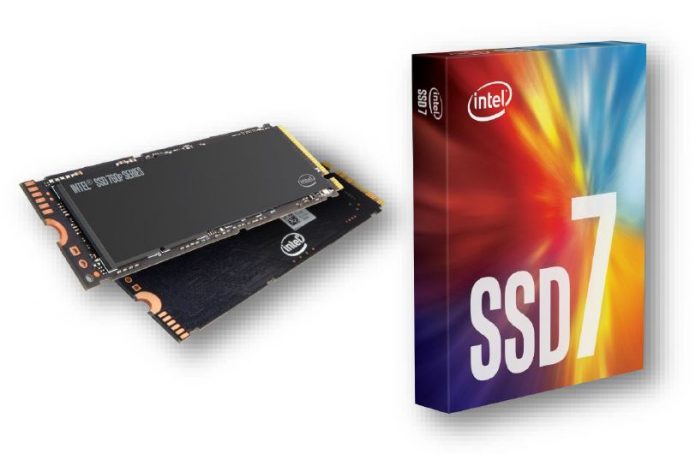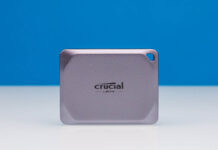Intel has been rolling out 64-layer 3D NAND products for some time. Perhaps the last major rollout we will see is the Intel 7 Series SSDs, featuring the Intel 760p series. The Intel SSD 760P series is a TLC-based NAND SSD with significantly more performance, lower power consumption and higher capacities than Intel’s previous generation NVMe m.2 consumer SSDs.
Intel 760p Series TLC SSDs
The Intel 760p series of TLC SSDs are part of the Intel 7 series SSD family. Along with the Intel SSD 760p there is the Intel SSD Pro 7600p for business machines and the embedded segment the Intel SSD E 6100p.
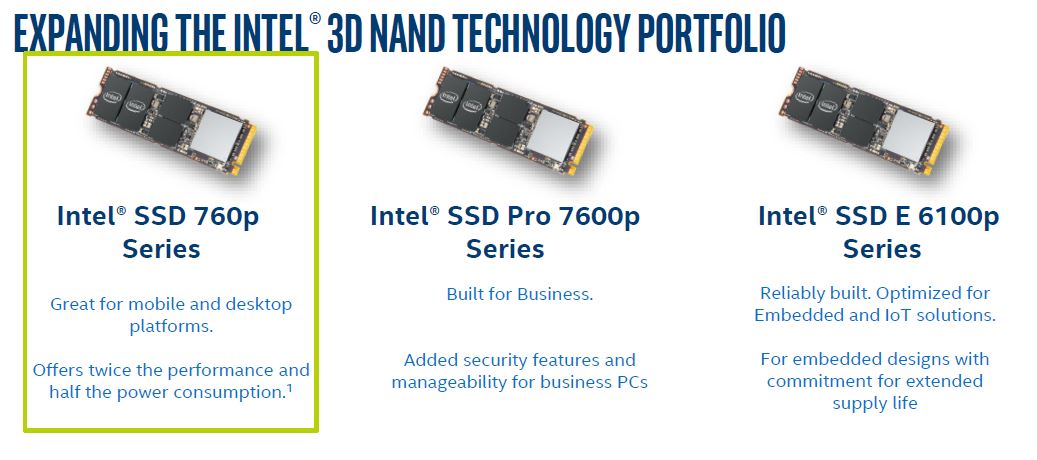
With this generation, Intel has a m.2 SSD capable of over 3GB/s reads and 340K read IOPS which is a major improvement. Beyond the speed improvements, Intel is able to offer up to 512GB today at $199 and is going to be offering up to 2TB later in Q1 2018.
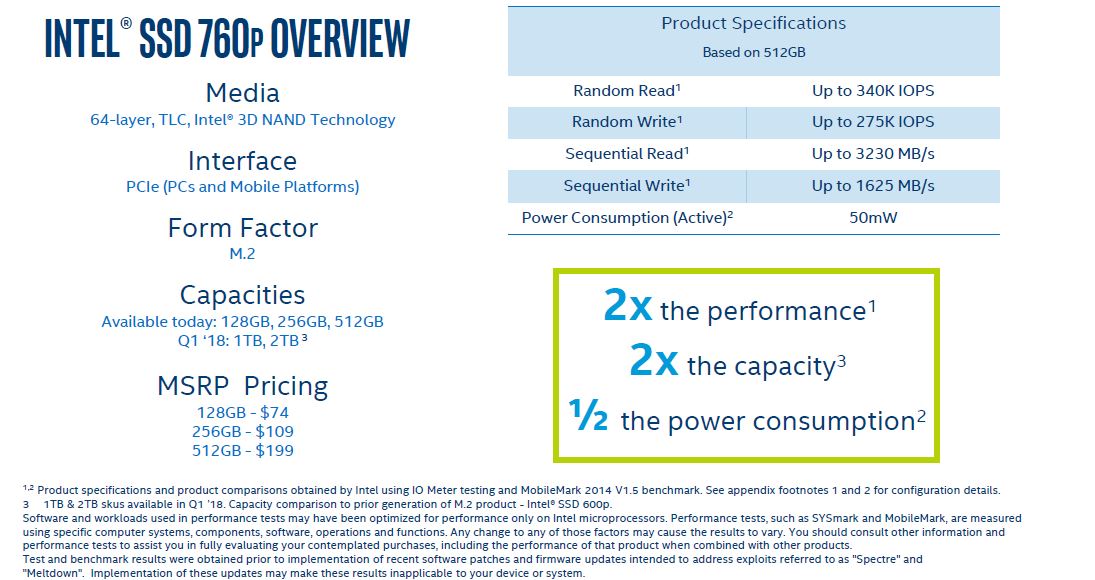
The other impact is that list pricing for a 128GB Intel 760p is $74 which is not bad if you are looking for an Intel boot device.
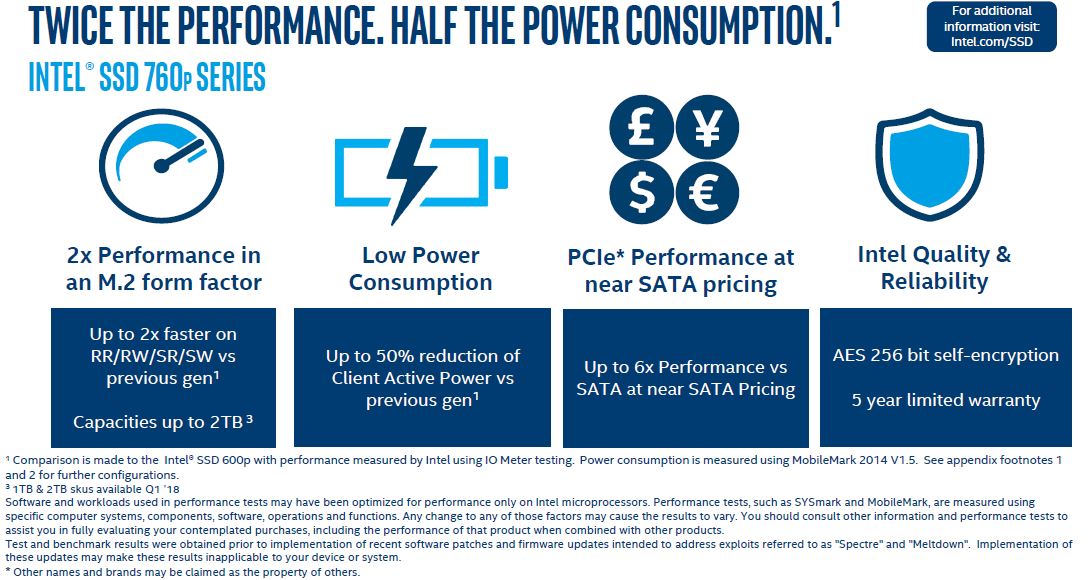
Beyond the enormous increase in tops speeds, the power consumption is now rated at half, or around 50mW when active. That is a major improvement for notebooks and low power applications.
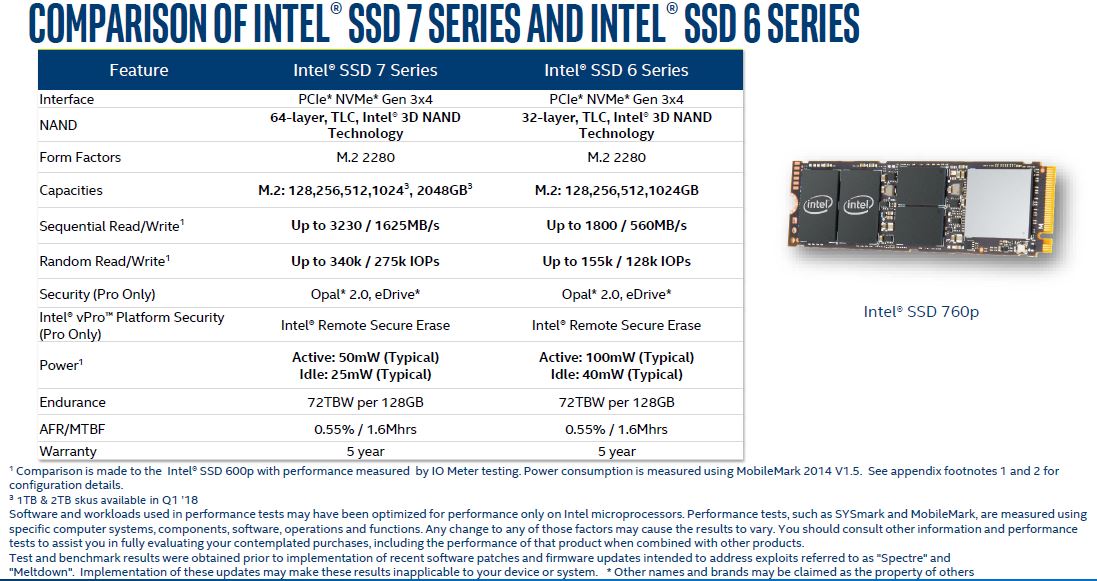
This is Intel’s third generation of 64-layer 3D NAND. Intel likes to tout its Floating Gate 3D NAND technology.
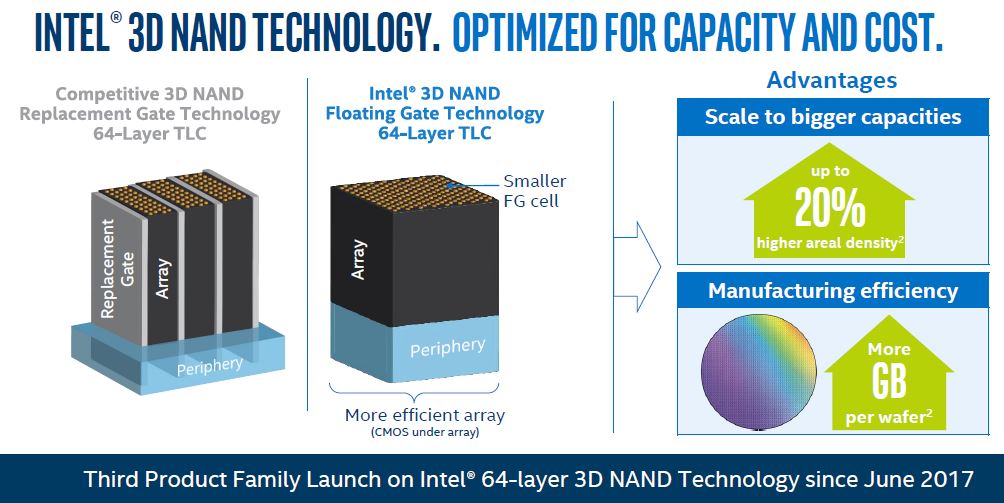
Intel claims that this gives them a manufacturing advantage over its competitors, however, until we see pricing dip below Samsung by a significant margin, this should be read as Intel can potentially use this to stay competitive.
Final Words
With its previous generation, the 6-series, the Intel SSD line was not overly performance competitive with drives from vendors such as Samsung. The 7 series should be more competitive and we know many users who prefer Intel SSDs to other brands, often based on their data center reliability. For those users, the new Intel 7 series SSD should be an excellent option.

